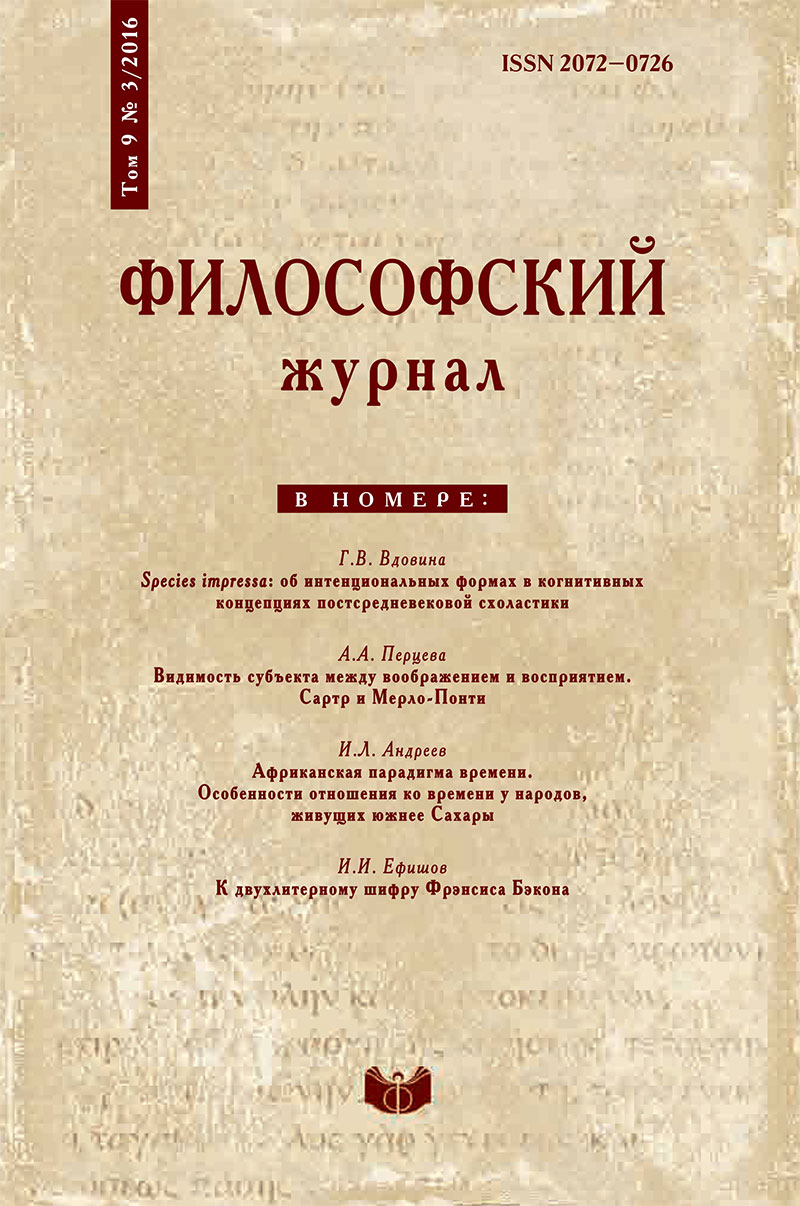Visibility of the subject between imagination and perception. Sartre and Merleau-Ponty
DOI:
https://doi.org/10.21146/2072-0726-2016-9-3-77-105Keywords:
Sartre, Merleau-Ponty, the visible, subject, consciousness, the other, perception, imagination, glance, fleshAbstract
This paper explores the theoretical difficulties arising from the treatment of the problem of the visibility of the subject by the philosophers Jean-Paul Sartre and Maurice Merleau-Ponty. The author attempts an interpretation of the glance of the other, described by Sartre in his Being and Nothingness, as a specific form of this kind of visibility, in order to demonstrate the “destructive” potential of such description for Sartre's own dualistic ontology. The analysis of the passages from Being and Nothingness where an encounter with the glance of the other is depicted, brings into question at least two of the key oppositions in Sartre's early works, imagination vs. perception and consciousness vs. object. As a result, the visibility of the subject, although given quite a persuasive account in Being and Nothingness, actually remains non-theorised (and, very likely, non-theorisable within the limits allowed by a dualist ontology). It would seem that it is Merleau-Ponty who should be able to solve the problem of theoretical justification of non-contradictory foundations of the visibility of the subject, since he is mainly interested in finding the common ground for various oppositions without nullifying the oppositions themselves. Merleau-Ponty's critique of the opposition between imagination and perception in Sartre, however, being centered as it is on the notion of “flesh” and, eventually, on the reversibility internal to vision, meets with difficulties once it is required to provide a solution to the second dichotomy, the one between consciousness and the object. Even though in Merleau-Ponty's late work The Visible and the Invisible the visibility of the subject ceases to be problematic, his criticism of Sartre's notion of 'pre-reflexive consciousness' still leads to his very definition of the position of the 'subject' (which already in early Sartre was equalized in status with the object) being ambiguous.






